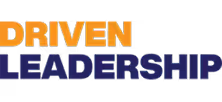Emerging Leadership Program in Seattle, WA


Leadership Training Emerging Leadership Program in Seattle, WA
Seattle organizations facing rapid growth, high turnover, and hybrid work dynamics need a reliable pipeline of capable leaders. The Leadership Training Emerging Leadership Program in Seattle, WA is designed for high-potential employees who are ready to move from strong individual contributors into effective front-line and mid-level leaders. This program focuses on practical leadership foundations, targeted mentorship, business-aligned action-learning projects, and clear advancement pathways to strengthen succession planning across Seattle workplaces.
Why Seattle organizations need an emerging leaders program
Seattle’s labor market is competitive: tech firms, healthcare systems, higher education, maritime and manufacturing sectors all recruit for specialized skills. That competition, combined with hybrid work, compressed career timelines, and high cost of living, makes retaining and developing high-potential talent essential. Emerging leaders programs reduce promotion risk by preparing internal candidates to step into roles with confidence and measurable capability. In Seattle specifically, programs that emphasize stakeholder alignment, remote leadership skills, and inclusion perform best.
Common emerging leadership challenges in Seattle-area teams
- Difficulty transitioning individual contributors into managers who can lead teams remotely and in-person.
- Inconsistent leadership skills across departments after rapid hires or mergers.
- Lack of visible career pathways, causing top performers to leave for faster promotions.
- Managers who know technical work but lack coaching, delegation, and feedback skills.
- Limited time for development given heavy project load and distributed teams.
This program is built to address those exact pain points through focused, business-connected learning.
Core components of the Emerging Leadership Program
The curriculum blends experiential learning with assessments and mentorship to deliver practical outcomes:
- Foundational leadership skills
- Communication for influence, giving and receiving feedback, time and priority management.
- Situational leadership and decision making under ambiguity.
- Inclusive leadership practices and coaching for diverse teams.
- Mentorship and sponsorship
- One-to-one mentoring with senior leaders or cross-functional sponsors to translate learning into career moves.
- Manager alignment sessions to ensure on-the-job reinforcement and visibility.
- Action-learning projects
- Real business challenges scoped with leadership sponsors.
- Cross-functional teams deliver proposals and implementation plans tied to measurable KPIs.
- Assessment and advancement pathways
- 360 feedback, behavior-based interviews, and strengths or competency diagnostics to baseline and measure progress.
- Individual development plans (IDPs) that map competencies to role readiness and promotion criteria.
- Outcomes for succession planning
- Readiness matrices and talent pools tagged to key roles for faster internal appointments.
- Data-driven succession recommendations for leadership tiers.
How participants are selected and assessed
Selection targets employees identified as high potential through talent reviews, performance history, and manager nominations. A short diagnostic process typically includes:
- Competency mapping against the organization’s leadership model.
- Brief behavioral assessment and a manager endorsement to confirm readiness and capacity.
- Development goals aligned to business priorities to ensure the cohort’s work lifts strategic outcomes.
Baseline and post-program assessments allow HR and executives to quantify skill gains and readiness percentage improvements for key roles.
Learning format and schedule tailored for Seattle teams
To fit Seattle workstyles and climate (busy schedules, hybrid teams, and a culture of experimentation), the program uses a blended format:
- Pre-program diagnostics and microlearning modules delivered online.
- Two intensive in-person or virtual workshops (depending on cohort needs) to practice core skills.
- Ongoing biweekly virtual learning labs and peer coaching sessions.
- A 6-12 week action-learning phase where teams execute a business-backed project.
- Final presentation day with leadership sponsors for assessment and advancement decisions.
This blend preserves productivity while accelerating applied learning.
Action-learning and mentorship in practice
Action-learning projects ensure that learning transfers directly to measurable business impact. Examples tailored to Seattle employers include:
- Designing a remote onboarding process to reduce time-to-productivity for distributed engineers.
- Implementing a cross-department workflow to accelerate product releases for a software team.
- Leading a cost-savings initiative for facilities or operational efficiency in healthcare or higher-ed administration.
Each project pairs participants with a mentor who provides scope guidance, stakeholder introductions, and performance feedback. Mentorship turns theoretical skill into demonstrated leadership behaviors.
Measuring outcomes and demonstrating ROI
Meaningful measurement is central to BOFU decision-making. The program provides metrics that align with executive priorities:
- Competency score improvement from baseline to program completion.
- Percentage of participants promoted or placed on a succession slate within 6-12 months.
- Retention rates for participants versus matched peers.
- Business KPI changes attributable to action-learning projects (time saved, revenue impact, cost reduction, engagement scores).
These metrics provide evidence for succession planning and help justify ongoing investment in leadership development.
Common implementation barriers and solutions
- Time constraints: use microlearning and protected project time so development does not compete with daily workloads.
- Manager disengagement: include manager alignment sessions and deliverables tied to operational goals so managers see immediate value.
- Remote participation: run virtual labs, local meetups, and asynchronous assignments to maximize accessibility across Seattle neighborhoods.
- Measuring impact: set clear project KPIs from day one and use standard assessment tools to track progress.
Long-term benefits and maintenance
Beyond immediate promotions, a structured emerging leaders program creates a predictable internal pipeline, reduces hiring costs, and fosters a leadership culture that supports innovation and retention. Maintenance strategies include alumni cohorts, ongoing coaching check-ins, quarterly talent reviews, and integration of competency metrics into performance cycles. For Seattle organizations, this sustained approach helps institutions compete for talent by offering clear, accelerated career development grounded in business impact.
Final note on fit for Seattle organizations
A Leadership Training Emerging Leadership Program in Seattle, WA is especially valuable for organizations navigating hybrid teams, high growth, or mission-driven sectors. When built around practical projects, senior mentorship, and measurable advancement pathways, the program not only prepares leaders to perform today but also strengthens long-term succession planning in Seattle’s dynamic market.

